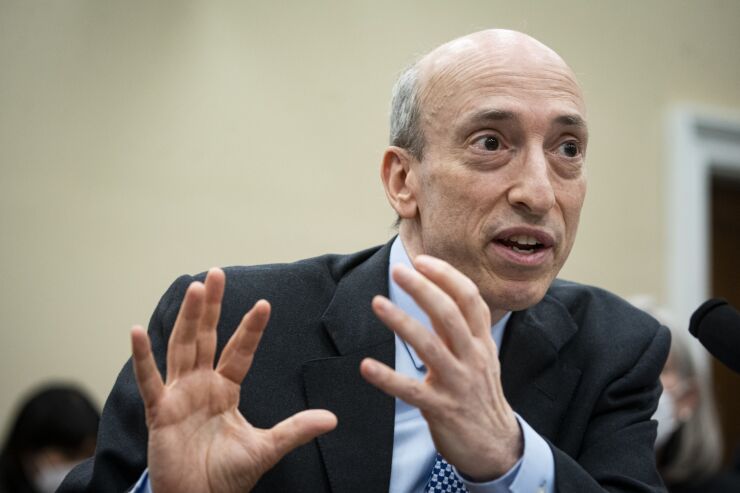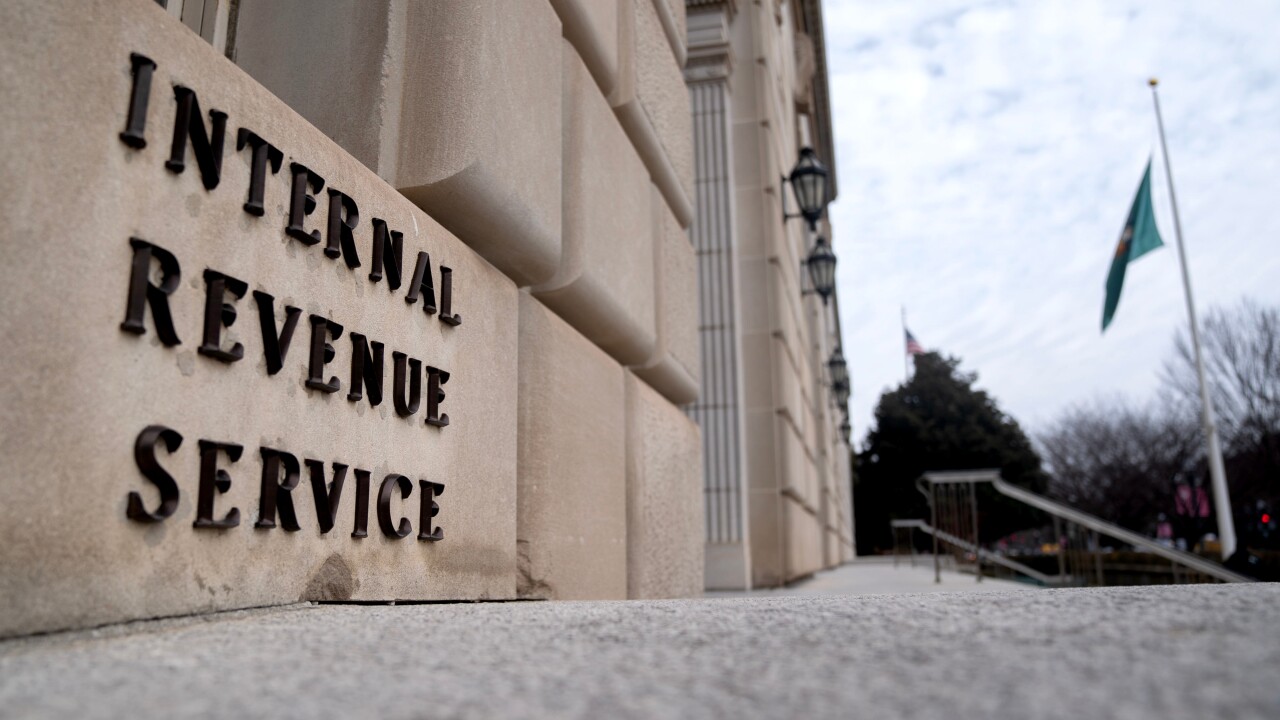The Securities and Exchange Commission is taking its biggest step yet to stop money managers from misleading investors when they claim their funds are focused on environmental, social or governance issues.
The agency proposed a slate of new restrictions Wednesday aimed at ensuring ESG funds accurately describe their investments. Some would also need to disclose the aggregated greenhouse gas emissions of companies they’re invested in, according to the SEC.
Concerns are mounting over a lack of consistent standards for investments claiming to be sustainable, with the ESG label slapped on everything from exchange-traded funds to complex derivatives. During the Biden administration, the SEC has been focused on the issue, and has signaled a clampdown was looming.
“It is important that investors have consistent and comparable disclosures about asset managers’ ESG strategies so they can understand what data underlies funds’ claims and choose the right investments for them,” SEC Chair Gary Gensler said in a statement.

In one proposed change, the SEC would expand an existing rule to ensure funds labeled ESG invest at least 80% of their assets in a way that lines up with that strategy.
The agency is also weighing more standardized disclosures about their investment strategies. Those changes could help investors get a better understanding of the underlying investments in a fund and its overall strategy for addressing climate change or social issues like diversity, equity and inclusion.
Republicans oppose the SEC’s focus on ESG and say the agency shouldn’t play a role in rating municipal debt and or in making decisions about providing financing to oil, gas and coal companies.
“These proposals are designed to manufacture activism by funds on ESG issues,” said Republican Commissioner Hester Peirce, who opposed the proposal.
In a separate move, the SEC announced on Monday that Bank of New York Mellon Corp. unit agreed to pay $1.5 million to settle claims that it falsely implied some mutual funds had undergone an ESG quality review. BNY, which didn’t admit or deny the allegations, said that it had taken steps to improve communications with investors.
Globally, some $2.7 trillion is parked in ESG-labeled exchange-traded funds and mutual funds, according to data from research firm Morningstar Inc. This stratospheric growth has fueled concerns about greenwashing — when companies exaggerate their environmental benefits — and prompted criticism for having
While institutional players are already highly attuned to ESG considerations and can often get the information they need about what’s in a fund, retail investors are less able to dig into a portfolio’s underlying assets and are “naturally more at risk of greenwashing,” said Quinn Curtis, a professor at University of Virginia School of Law.
The proposals are the second set of major ESG-related policy changes that the agency is considering under Gensler. In March, the SEC announced plans to require companies to reveal detailed information about their greenhouse gas pollution and to outline the risks a warming planet poses to their operations.
Asset managers’ ability to comply will depend on how much information they can get from the companies they invest in, said Sandra Peters, head of financial reporting policy at the CFA Institute.
The investment industry will spend the coming weeks pouring over the details. The SEC will take public comment for as long as 60 days, and may revise the proposal before holding a second vote to finalize the regulation.





